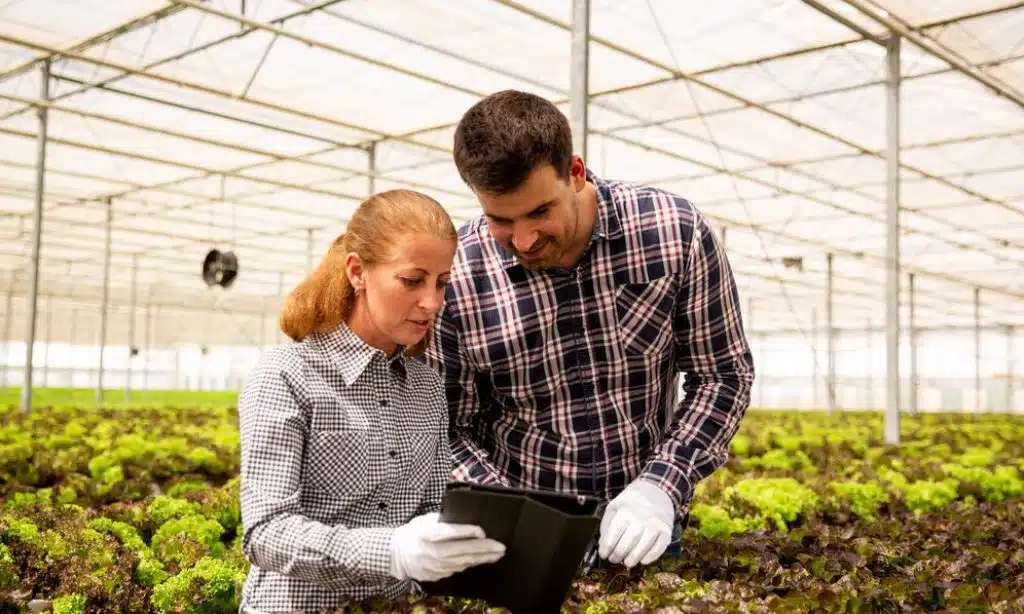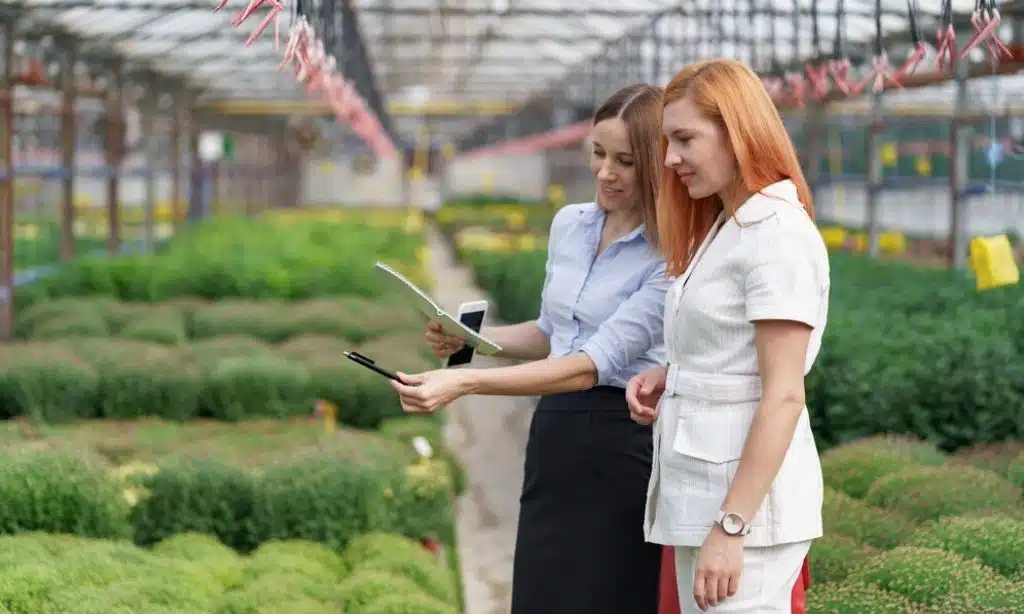Agriculture has always been the backbone of Australia’s economy, contributing significantly to the country’s GDP and employment.
However, as climate change, labor shortages, and resource constraints challenge traditional farming methods, Agritech has emerged as a game-changer.
Agritech refers to the application of technology to enhance productivity, efficiency, and sustainability in agriculture.
Australia has become a hub for agribusiness innovation, with startups developing groundbreaking solutions to transform the sector.
In this article, we’ll explore 10 innovative Australian Agritech startups that are leading the charge in revolutionizing farming practices.
These companies are not only solving pressing issues but also positioning Australia as a global leader in agricultural technology.
What Is Agritech?
Agritech encompasses a wide range of technologies, including artificial intelligence (AI), robotics, Internet of Things (IoT), and biotechnology, aimed at addressing modern agricultural challenges. These solutions enhance efficiency, reduce waste, and promote sustainability.
In Australia, Agritech is crucial for tackling unique farming challenges, such as water scarcity, unpredictable weather, and soil degradation.
By integrating technology into agriculture, Australian farmers are able to optimize yields, conserve resources, and compete in global markets.
Why Australia Is a Hub for Agritech Innovation
Several factors have made Australia a fertile ground for Agritech innovation:
- Diverse Agricultural Landscape: From arid regions to lush vineyards, Australia’s varied geography requires diverse technological solutions.
- Government Support: Initiatives like AgriFutures and the National Farmers’ Federation’s 2030 Roadmap provide funding and resources for Agritech startups.
- Growing Investment: Venture capital and private investments in Agritech are increasing, with a focus on sustainability and innovation.
10 Innovative Startups in the Australian Agritech Space
Below, we’ve highlighted 10 leading Agritech startups in Australia. Each company is tackling unique challenges with innovative solutions.
1. The Yield: Innovating Water Management
The Yield, established in 2014, focuses on precision weather and yield prediction for farmers.
Their IoT-based sensors and data analytics help farmers optimize water usage and improve crop outcomes by providing hyper-local weather forecasts and predictive analytics.
The Yield’s innovative platform integrates seamlessly with existing farming operations, offering tailored insights to maximize efficiency and reduce waste.
Through strategic partnerships with companies like Bosch and Microsoft, The Yield is continuously refining its technology to meet the evolving needs of farmers.
These efforts are paving the way for smarter, more sustainable agricultural practices globally.
| Details | Information |
| Location | Hobart, Australia |
| Core Innovations | IoT-enabled weather and water management tools |
| Key Achievements | Partnerships with Bosch and Microsoft |
| Future Outlook | Expanding globally to regions with water scarcity |
| Website | https://www.theyield.com |
2. AgriDigital: Revolutionizing Supply Chain Management
Launched in 2015, AgriDigital uses blockchain technology to bring transparency and efficiency to agricultural supply chains. Their platform ensures secure transactions and traceability from farm to table, addressing critical gaps in traditional supply chains.
By leveraging smart contracts and real-time tracking, AgriDigital enables farmers, buyers, and suppliers to streamline their operations and reduce risks associated with fraud or errors.
The company’s solutions have been widely adopted in grain trading and are now expanding to cover other agricultural commodities, reinforcing its role as a key player in the digitization of agriculture.
| Details | Information |
| Location | Sydney, Australia |
| Core Innovations | Blockchain-based supply chain solutions |
| Key Achievements | Processed over $1 billion in grain transactions |
| Future Outlook | Introducing AI to predict market trends |
| Website | www.agridigital.io |
3. SwarmFarm Robotics: Advancing Agri-Robotics
Founded in 2012, SwarmFarm Robotics develops autonomous farming robots that perform tasks such as weeding, spraying, and planting.
These robots not only reduce reliance on heavy machinery but also enable precision farming practices, leading to better resource efficiency.
Their scalable solutions are adaptable to various farm sizes and types, making advanced automation accessible to a wider range of farmers.
Additionally, SwarmFarm’s innovations contribute significantly to sustainability by reducing the environmental footprint associated with traditional farming methods.
With ongoing developments in robotic capabilities, the company is paving the way for the next generation of smart, eco-friendly farming solutions.
| Details | Information |
| Location | Emerald, Queensland |
| Core Innovations | Autonomous robots for various farming tasks |
| Key Achievements | Deployed over 50 robots across Australia |
| Future Outlook | Expanding capabilities to include harvesting |
| Website | www.swarmfarm.com |
4. FluroSat: Transforming Precision Farming
Founded in 2016, FluroSat focuses on precision agriculture, using remote sensing and AI to optimize crop management.
Their platform provides farmers with actionable insights into crop health, enabling better decision-making and resource use.
| Details | Information |
| Location | Sydney, Australia |
| Core Innovations | AI-driven crop analytics, remote sensing tools |
| Key Achievements | Expanded to over 15 countries, partnered with CSIRO |
| Future Outlook | Further integration of AI to enhance predictive insights |
| Website | www.flurosat.com |
5 Ceres Tag: Revolutionizing Livestock Management
Ceres Tag, established in 2016, has created smart ear tags for livestock that track location, health, and activity.
These advanced tags provide real-time data, enabling farmers to monitor their herds more effectively and identify potential health issues before they escalate.
By reducing the time and labor required for manual tracking, Ceres Tag enhances operational efficiency.
Additionally, the technology supports sustainable practices by minimizing resource wastage and improving herd management strategies.
The company continues to innovate, focusing on integrating advanced analytics to provide even deeper insights for farmers globally.
| Details | Information |
| Location | Brisbane, Australia |
| Core Innovations | GPS-enabled smart tags for livestock |
| Key Achievements | Adopted by major cattle stations across Australia |
| Future Outlook | Expanding into international livestock markets |
| Website | www.cerestag.com |
6 BioGill: Enhancing Sustainable Farming
BioGill, founded in 2006, develops bioreactors for wastewater treatment, helping farms recycle water and reduce environmental impact.
Their innovative technology uses biological processes to break down organic waste, making the treated water suitable for reuse in irrigation and other agricultural applications.
This solution has proven to be particularly valuable in drought-prone regions, where water conservation is critical.
BioGill’s easy-to-install systems are highly adaptable, catering to farms of varying sizes and needs, ensuring sustainability across different agricultural sectors.
| Details | Information |
| Location | Sydney, Australia |
| Core Innovations | Wastewater treatment for agricultural use |
| Key Achievements | Successfully treated wastewater for vineyards |
| Future Outlook | Scaling solutions for large-scale agricultural use |
| Website | www.biogill.com |
7 Agerris: Innovating AI and Robotics
Agerris, spun out of the University of Sydney in 2019, focuses on AI and robotics for agriculture.
Their robotic platforms automate tasks like weeding and yield estimation, reducing labor-intensive processes and improving operational efficiency.
The company’s cutting-edge technologies are designed to adapt to various crop types and field conditions, ensuring maximum applicability across farming sectors.
Agerris is also exploring advanced vision systems and machine learning to enhance the accuracy and reliability of its robots.
These developments position Agerris as a frontrunner in the field of agricultural automation.
| Details | Information |
| Location | Sydney, Australia |
| Core Innovations | AI-powered robotics for farming |
| Key Achievements | Secured $6.5 million in seed funding |
| Future Outlook | Developing autonomous fruit-picking robots |
| Website | www.agerris.com |
8 Myriota: Revolutionizing Connectivity in Agriculture
Myriota, founded in 2015, specializes in satellite IoT connectivity, enabling farmers in remote areas to monitor assets and crops in real time without reliance on traditional networks.
By providing secure, low-cost data transfer solutions, Myriota bridges the connectivity gap faced by many rural farmers.
Their innovative technology ensures uninterrupted access to crucial data, empowering farmers to make informed decisions even in the most isolated locations.
The company’s devices are easy to deploy and designed to withstand extreme conditions, making them ideal for diverse agricultural settings.
| Details | Information |
| Location | Adelaide, Australia |
| Core Innovations | Satellite-based IoT connectivity |
| Key Achievements | Deployed devices in over 20 countries |
| Future Outlook | Expanding network coverage globally |
| Website | www.myriota.com |
9 AgriWebb: Empowering Farmers with Data
Founded in 2014, AgriWebb offers a comprehensive farm management platform that integrates livestock tracking, pasture management, and financial planning.
The platform provides farmers with a user-friendly interface to monitor herd health, track grazing patterns, and manage farm finances all in one place.
By automating manual processes, AgriWebb helps farmers save time and improve productivity.
Its ability to generate detailed reports also aids in compliance with regulatory requirements and supports better decision-making.
Today, AgriWebb is trusted by thousands of farmers across the globe, making it a leader in farm management solutions.
| Details | Information |
| Location | Sydney, Australia |
| Core Innovations | Farm management software |
| Key Achievements | Used by over 8,000 farmers worldwide |
| Future Outlook | Adding predictive analytics to the platform |
| Website | www.agriwebb.com |
10 Sundrop Farms: Pioneering Sustainable Farming
Sundrop Farms, established in 2009, uses solar energy and desalinated water to grow crops in arid regions, setting a benchmark for sustainable agriculture.
Their innovative approach combines advanced greenhouse technology with renewable energy sources, drastically reducing the reliance on traditional water and energy inputs.
This method has proven especially effective in addressing challenges related to water scarcity and food production in harsh climates, making them a global leader in sustainable farming solutions.
| Details | Information |
| Location | Port Augusta, South Australia |
| Core Innovations | Solar-powered greenhouse farming |
| Key Achievements | Successfully cultivated over 15,000 tons of produce |
| Future Outlook | Expanding operations in other arid regions worldwide |
| Website | www.sundropfarms.com |
5 Challenges for Australian Agritech Startups
Take a look at the challenges for Agritech startups in Australia:
1. Funding and Investment
Many startups face challenges in securing funding, especially during the early stages. Despite increasing interest from venture capitalists, the high cost of research and development often deters potential investors.
The public and private sectors need to collaborate more effectively to provide accessible funding channels.
2. Farmer Adoption
Resistance to adopting new technologies remains a significant hurdle. Many farmers, especially those in remote or traditional setups, are hesitant to change their methods due to perceived costs, lack of knowledge, or uncertainty about long-term benefits.
Initiatives to educate and demonstrate the tangible value of agrotech solutions are essential.
3. Regulatory Barriers
Navigating complex agricultural laws and compliance requirements can be overwhelming for startups.
Each state in Australia has its own regulations, adding another layer of complexity for businesses looking to scale nationally.
Simplified and uniform policies can significantly ease the process for emerging companies.
4. Infrastructure Gaps
Many rural and remote areas lack the infrastructure required to implement advanced technologies, such as stable internet connections and reliable power sources.
Addressing these gaps is vital to ensure equitable access to Agritech innovations.
5. Climate Variability
The unpredictable nature of climate change poses an ongoing challenge, even for agritech solutions.
Startups must continuously innovate to address extreme weather conditions, droughts, and other environmental stressors.
Key Agritech Trends in Australia
- AI and Data Analytics: Enhancing decision-making and productivity.
- Sustainable Solutions: Eco-friendly fertilizers and water recycling.
- IoT and Connectivity: Real-time monitoring for remote farms.
- Robotics and Automation: Reducing labor dependency.
Takeaway
Australian Agritech startups are leading the way in transforming global agriculture.
By addressing critical challenges and leveraging innovative technologies, these companies are ensuring a sustainable future for farming.
As investment and support for Agritech continue to grow, the sector is poised to make an even greater impact worldwide.






































